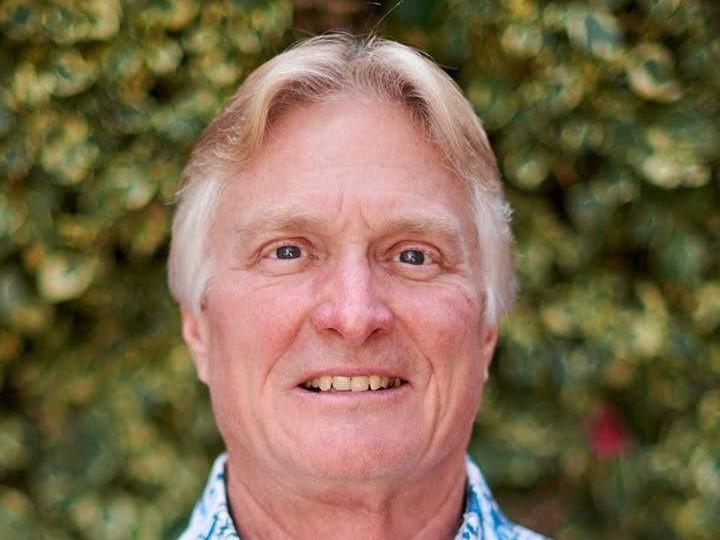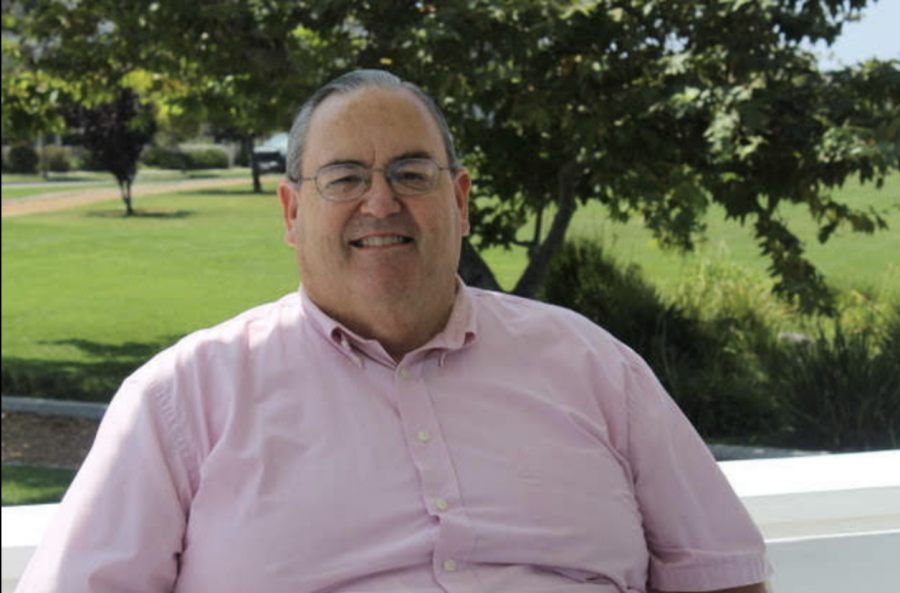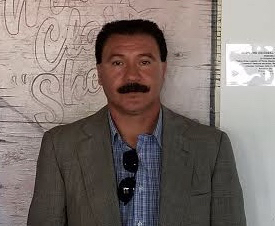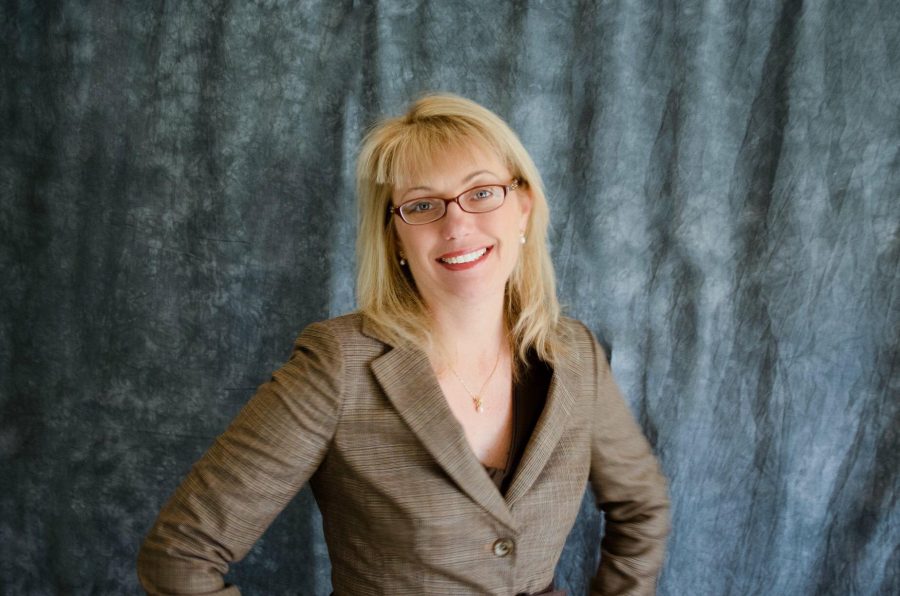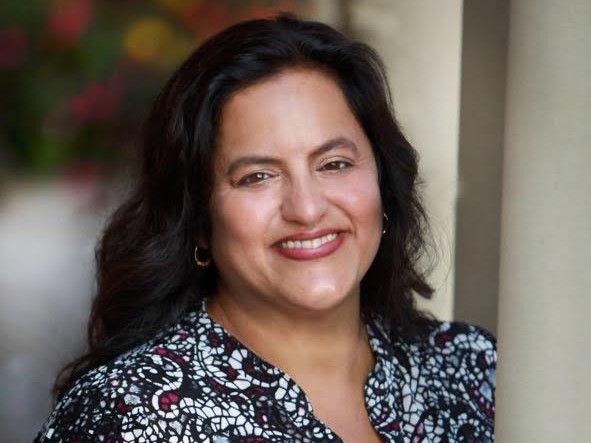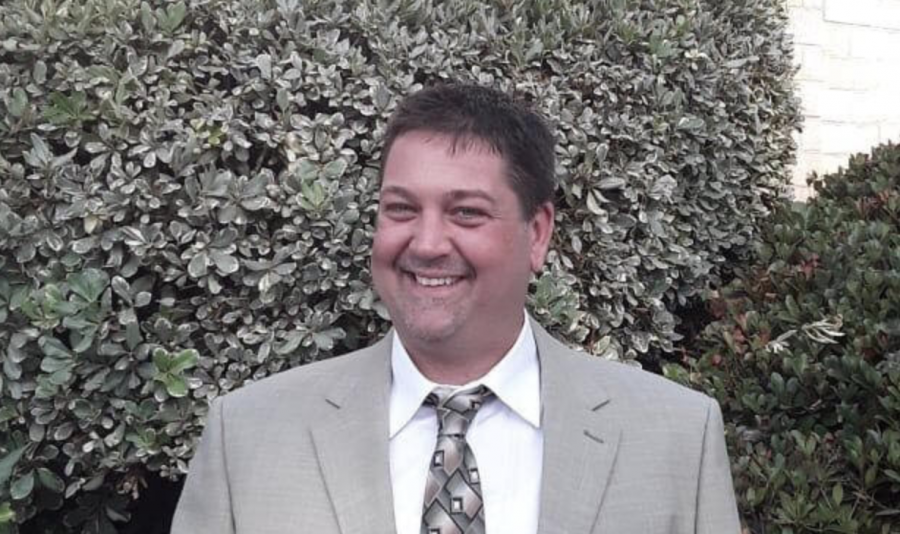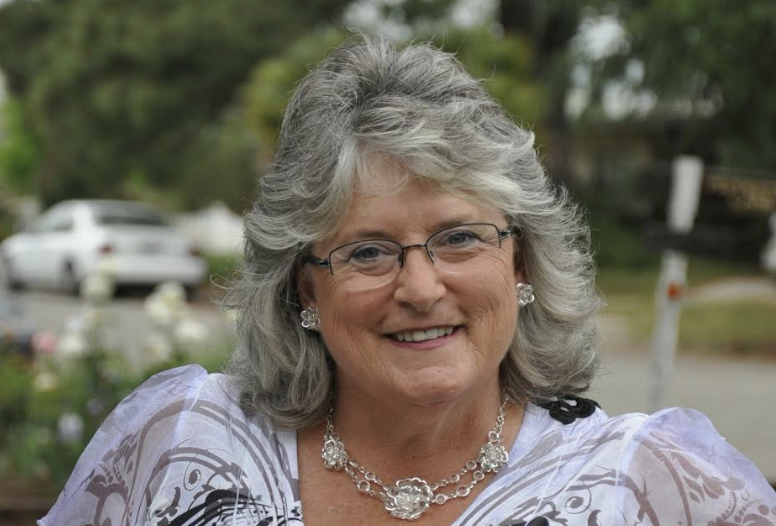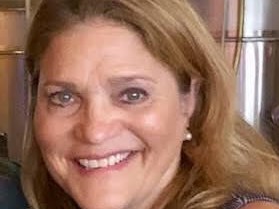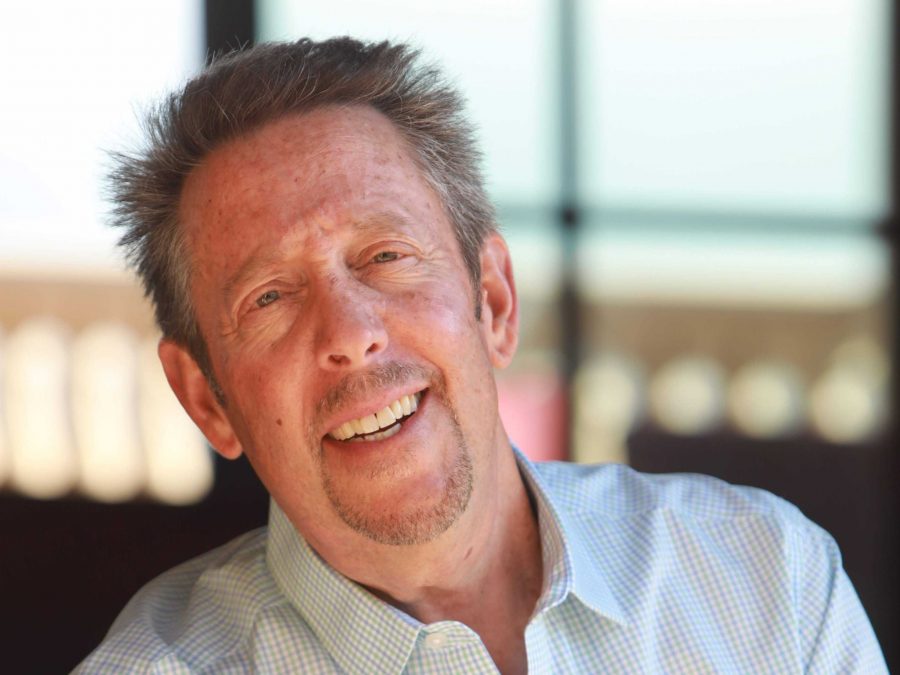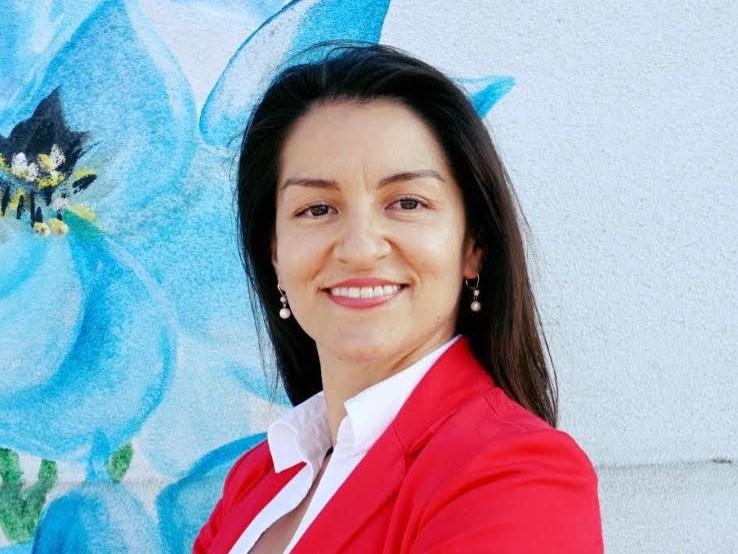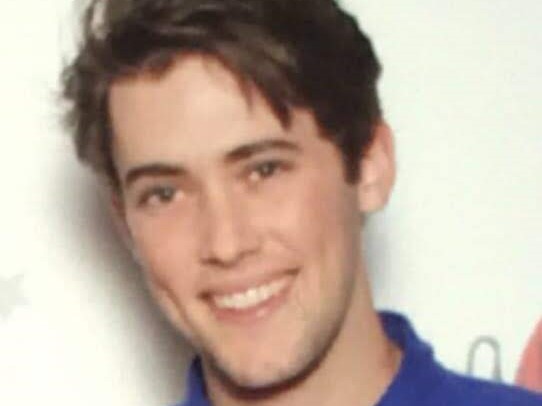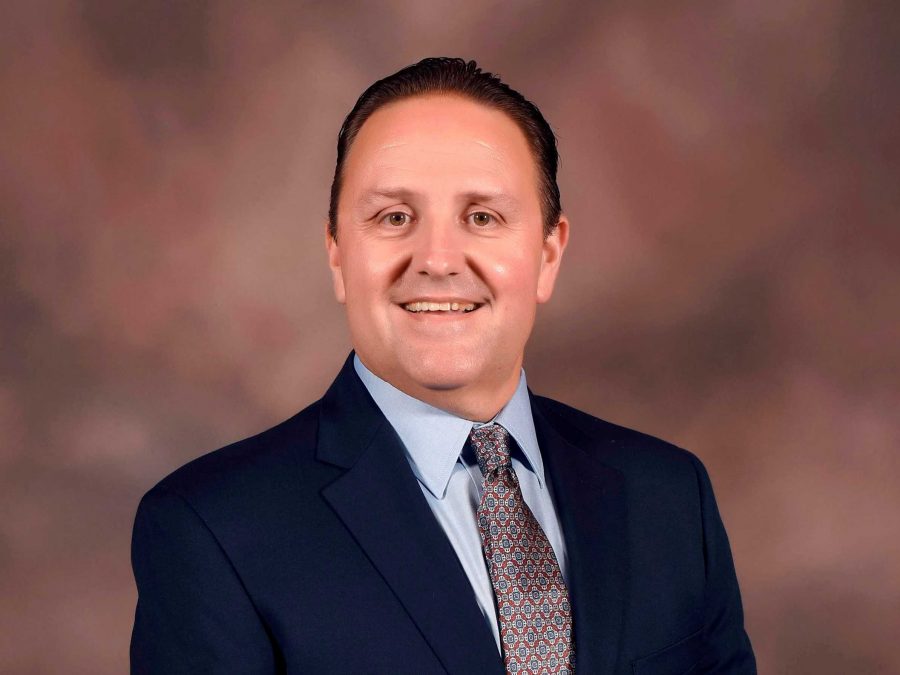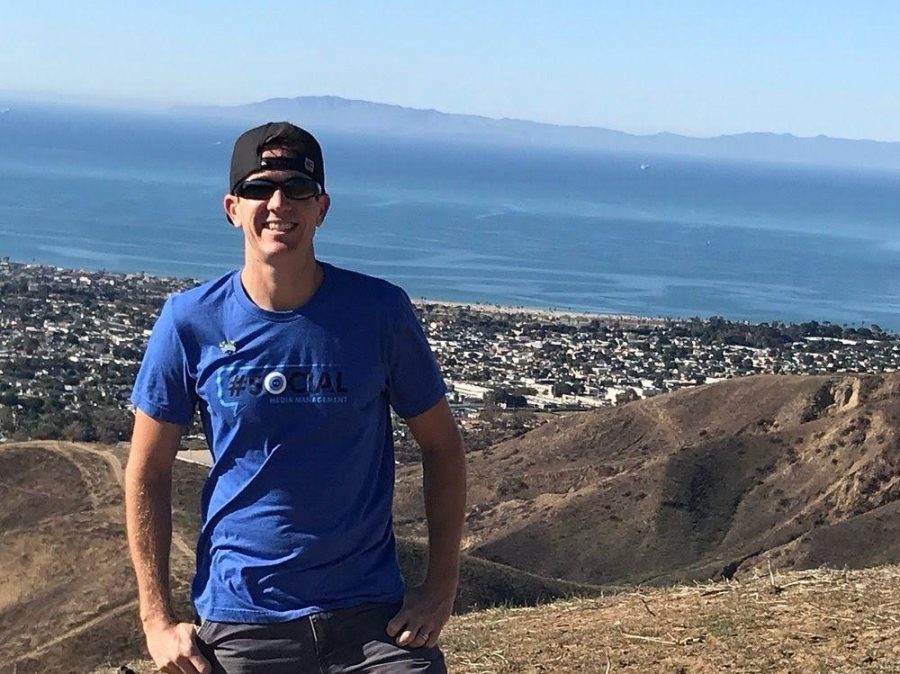INTERVIEWER: What’s your background as a Venturan?
CHARLES KISTNER: First of all, I grew up in Simi Valley. I moved out here in 1986 with my family – my family as in my wife and my young kids. They all went to local Ventura schools and graduated from Ventura High School. I’ve got grandkids, actually, that are now attending for Ventura High School as a senior, and then I’ve got a granddaughter who goes to Portola which is where my kids went. Anyways, we moved out here basically because Simi Valley had kind of outgrown itself and there wasn’t a lot of place to play and stuff, so we lived up on Sunridge and had Mound and Montalvo Hill and all that kind of stuff to run around and play on and chase lizards and stuff. It’s been really great living out here, obviously. Living by the beach, that’s why we come out here. So, I got involved in politics. I have got a degree in political science from UCSB and while I was still going to school I was working on political campaigns. After I got out of school, I started working on local campaigns for city councils, school boards, county supervisors, a lot of different races in the area. I actually ran myself for 25 years ago in 1993 just to kind of get out into the community and get my name out there and so on. I had kids that were playing soccer, and we were traveling all over the place to go play in tournaments. We thought “God, it’s great weather and we could play in tournaments here year-round, so we really need to have a sports park.” That’s where the sports park idea came from. I was actually involved in the first two times to try to get a sports park out at Kimball and those weren’t successful. On the third try, which I was much less involved with, they actually got it through. Unfortunately, we only have a partial park and it looks like it’s more of a community park versus the sports park that we were originally intending, which was also originally intended to pay for itself. You’d have these tournaments and it would pay for itself. When I get on the council that’s definitely one of the things I want to look at is what are their capacities for the park and what changes do we want to make to make it as successful as it can be. The other thing that I was involved in and suggested when I ran the first time was to have a movie theater downtown. Most people at that time and thought the retail was going to come back to downtown – maybe a JCPenney‘s or something like that, which is barely hanging on these days – but I really thought we needed something that was going to attract Venturans and people from outside the area coming downtown any day of the week. Back then, it was purely on weekends you might have someone coming for the thrift stores and that was basically it. The movie theater really helped. At one point we had all kinds of cool coffee shops with live music and stuff. Now it’s more corporate and stuff but at least we have some pretty good restaurants down there and there’s a lot of foot traffic. Believe me, when we came here from Simi in 1986 and we thought “we’re going to be living in the city now” and then we drove downtown and we were all in shock. It was like everything was closed and it was 5 o’clock. Like “what happened here?” But it’s a different city now and a lot of it had to do with some of that. That’s basically what got me out here and got me involved in politics in the area.
INTERVIEWER: Which measure on the ballot are you most passionate about and why should students and their families also support it?
KISTNER: First of all, I’ve been involved with the Continuum of Care Housing and Services Committee for the last three years now, which is helping address the issue of homeless housing and the services that they need to provide. Really, Measures 1 and 2 address an awful lot of that. Measure 2 actually just is something that already passed, so people may not understand that, but it passed. The wording, apparently, was slightly incorrect and it didn’t apply, so they needed to resubmit it, but it’s basically the same measure. There’s not going to be any new tax on anybody. It’s just going to be a clarification. Those two both look like they’re going to pass. Not a lot of controversy there. We really do need more housing in the state and this is really what it comes down to, housing, at several levels. It does get back to what I believe and I hope you guys take note of this: that we have really almost lost a generation or generation and a half of people, especially my kids’ ages, who are now in their mid-30’s, who had to leave the area because there’s just not enough affordable housing. I’m not a believer in building affordable rentals. I think ownership is the way to go. I really think we need to have starter homes. This is something that follows, again, with what I’ve learned through the Continuum of Care is that we need to have some housing. Whether it’s the transitional housing for homeless who come out of the shelter and they’ve gotten their services, they’ve gotten a job, they’ve gotten their life somewhat back together but they need to have this continuation, and for young people to stay in the community, we really need to build the starter homes which would be $300,000 to $350,000 homes that are only maybe 1,000 square feet. It could be more like a communal housing where you’ve got eight to 10 1,000 square-foot units put on half an acre with a communal kitchen or rec room or whatever it is. You need to be creative, first of all, right now and you need to get these homes so that people can get started and work their way up the ladder. It was tough when I was a kid, but at least you had an idea that there was a step-by-step. You just bought a home for, at that time, $90,000 and you were able to live there for five years or so and establish yourself and move on. We really don’t have anything like that now. Obviously, with rents as high as they are, you can’t afford to rent here either. It’s a big step. It’s going to take a lot of us working on it. It’s a team effort. One of the other things that I suggest is we really need to plan things on a regional level, so it’s not just Ventura. I have worked on campaigns for over 25 years, so I’ve got a lot of friends who are elected officials or people that are community leaders and we really realize that we need to work together to establish new housing. This will help with job creation. We can retain some of the larger employers and hopefully attract some larger employers for some good jobs in the area.
INTERVIEWER: Two state propositions that would likely prove to be significantly impactful if passed in the election are Prop 2 and Prop 12. Do you support either, both, or neither of these measures? Why?
KISTNER: I’ve got to say that I am normally very up on what the propositions are, but, because I’m a candidate, [I’m not]. I know a bit about 10, two, some about five and one, but usually and certainly what I recommend to everybody is that before you go to vote you get together with a bunch of friends and you study the initiatives and then you have a good discussion about it. It’s amazing how many people, because of the commercials, think they know what these propositions are about but then when you actually sit down and read it sometimes yes means no and so on. You really need to get together with your friends and talk about it and vet is out. The other thing that I was going to say about that is as a politician – even though this is only the second time I’ve ran – I’ve been involved in local politics, local initiatives, obviously people coming to me and asking me about the propositions and so on. Generally, I think that our state government shucks its responsibility by having these initiatives. Most of these initiatives are fairly poorly written. There are going to be a lot of legal challenges and so on, which is actually what happened with Proposition 2. So, that’s why you need to have elected officials who are really accountable, responsible and are doing their job, because if it’s left up to special interests to write these initiatives then, obviously, they’re going to write it in their favor and, obviously, there’s going to be a challenge from the other side. That, to me is what we need to do, is really talk to your local assembly men or women and the state senator and really try to get him to understand that we want you to be accountable and responsible for our government.
INTERVIEWER: How do you plan to strengthen the partnership between the school district and the city, and involve more students in local government?
KISTNER: That’s a great question, first of all, because it comes up a lot. There’s a lot of times – in fact, there’s a couple people that are running for City Council – that if you look at what they said and some of their platforms, it looks like they’re running for the school board and then vice versa. There can be a real blend between the two, and then they’re very distinct in what their responsibilities are. Across the board, what this is all about is communication. It’s unfortunate, and I’m sure that some of the school board people suffer the same thing, but a lot of the time in these campaigns groups want you to be their person, 100% behind whatever it is they’re doing. I have never fallen into that category. I’ve been a centrist, I’ve been involved in a lot of moderate politics. I don’t believe in the extremes. I think that they’re good to have as a reminder of which direction we could end up going if we don’t play close attention to what’s there, but I really do believe in a silent majority and people that are pretty level headed. I go out and do my precinct walking and it’s very rewarding because you run into an awful lot of people that are like-minded. They want to see things get done. They want things done for the right reasons. It’s not about themselves, it’s about a better community. Really, with the council, with the school board, with dealing with the community itself – which again, for a long time there’s been a real tug of war between county politics and the city of Ventura or the city of Oxnard or whatever, that’s what’s got us in the pickle we’re in right now where we really haven’t moved forward for 15 or 20 years because we haven’t worked together to accomplish anything. So, communication and just being honest about your position and stuff. Taking some of the politics out of it and putting it aside and saying we have real goals and real needs that we have to meet right now. That’s what I’ll be doing is talking with people that are there. I’ve already got a relationship with a couple people and have over the years, but it’s not just those few people, you want to have a relationship with everybody so that everybody’s participating.
INTERVIEWER: What do you think is the most pressing issue facing our city today and how can it be addressed?
KISTNER: I think by far the most pressing issue, and I’ve been involved with a group called Venturans for Responsible and Efficient Government for the last 13 years or so and I helped found that. We look at issues of water and pensions and the city’s budget. In the city’s finances and over the last five years, it’s gotten just more and more difficult to really understand the budget and whether it’s intentional is left to be determined, but the bottom line is that if you really need to know what’s going on in the city financially it’s very difficult to find out right now. The number one priority is to get in there and find out exactly where city stands financially so that we can plan and prioritize accordingly. There are a lot of great ideas out there. There’s a lot of things that people would like. Whether it’s your streets repaved, or sidewalks in Montalvo, or more trees planted, all these things cost money as well as just the infrastructure itself. Anybody who really wants to understand a little bit about what our future looks like, you need to look at the capital improvement plans because whether it’s dealing with the water issues or sewer or just general street repairs, you’re talking hundreds of millions of dollars. Not that the city has to put all the money up, but you have to find the money to finance all of that stuff so there is a big chunk of that that comes directly from us and directly from the general funds. Really understanding the cities finances and knowing exactly where we stand so we can figure out what we can afford, what our priorities are and how to approach that and how we’re going to make more money for the city so that we can pay for the sayings
INTERVIEWER: Our City Council representatives should embody the values closest to our hearts, because these values will guide their decisions in office; they should also act as leaders not only on Monday nights in City Hall but throughout their term in their interactions with the community. What values do you embody, and how do you act as a role model for the youth of Ventura?
KISTNER: I’ve been active in this community since I moved here. That was one of the reasons why I got involved in the Council race back in 1993. I’ve coached, I’ve been involved in community organizations, ran organizations. There is just a lot of things that a lot of people do in this community to make it a better community. I am not the only person that’s done that. I’d certainly like to see that we could maybe cut down on commute times and stress in the community so that we have more people who can get involved, but I’ve been involved in so many things. This really came down to, even running in this campaign, the fact that politics has gotten a bad name. So, you can’t get a lot of good people to come out and run. There’s a lot of people who would be great candidates, but they just don’t want to put themselves in the limelight. Part of what I’m actually trying to do, and I stepped into this like “I am not going to change. I am who I am.” I am going to say things the way I see them. Obviously, I try to be gentle and make sure that when I’m talking about things. One thing you’ll learn in politics is that you don’t want to offend anybody because every time that you were upset someone you lose people and they don’t come back so you want to build momentum by keeping things positive and that will continue after being on Council. That’s definitely part of it. I’ve really got to know a lot of people in there Montalvo Community Council. Now, they’re trying to expand it so that it’s all District 6. That’s really where are you want to go. You want to have your districts and the community councils that are involved and them working to resolve some of the problems that are in the community so that I can concentrate on the big picture issues of housing and jobs and housing the homeless and making sure that our money is spent properly on dealing with homeless issues. We are about a quarter of the way there on where we need to be as far as water, but it still going to be an outstanding issue for the next five, six years or so. We need to find a way, especially if it really rains again, to capture some more of that water. My point is that having people take care of the neighborhood things and then when it comes to the point where “okay, this is where we’re at, we can’t resolve this,” then [it’s the council’s job]. I was talking with them just the other day. It would be ideal to meet with them twice quarterly or so to really kind of hear and see what’s going on. They are the ones that are going to tackle the day today stuff. I will be open to anybody calling. That’s just the nature of what you do when you run for city council. Again, with districts it will be a little more coordinated, which I think is good. Bottom line is you’re representing that district and then you’ve got a look at the big picture of what do we need and how can we take care of all the Ventura. As kids, I hope you guys will really recognize that it’s going to be a different time. You’re going to be on the ground level of how these changes are going to affect our community. I think you’re going to see that the elected officials are going to take a little while to figure all that out. So, the next two or three years are going to be a real test. We’ve got a new city manager so you’re going to have at least two or three new city council members. There’s a learning curve, no matter what anybody says. That’s one of the reasons why I felt like I needed to step in with my experience of working with and advising all of these other elected officials on everything from what we need to do to make sure that the collection was a success for Oxnard. It took years to develop it and there were several times that they wanted to throw their hands up and walk away or change it and stuff. It takes some dogged determination and will to make sure that things are done and done properly. That’s not going to happen overnight. I think we really need to clean up the Promenade. Way before there was an unfortunate a homicide down there, the homeless had pretty much taken over that area for the past two years. A lot of people that I know from the city and outside of the city would not go down there because they were afraid of the aggressive homeless and vagrants doubt that we’re down there. We need to concentrate on certain areas in the city that are going to make some money for us, that are going to allow us to have the city and the quality of life that we want to have, but it’s going to take step-by-step, several years. We need to have that, like I said, dogged determination to make sure that we follow through on anything, whether it’s water issues, dealing with the homeless, or creating new opportunities, all of that takes a lot of effort.
INTERVIEWER: Any other comments?
Kistner: Probably the biggest thing that I have seen firsthand while I’m out precinct walking that was already a part of my platform and already part of my concern is that – when you go out precinct walking you get these precinct lists and these precinct lista tell you that, you know, 65 percent of your population is 65 and over, but until you can really put a face with that, they’re just numbers. One of the things that I’ve been actively suggesting both before and now, but now I’m even more fervent about it, is that we have such an aging population in this area, particularly in my district, District 6, that my concern all along has been, and the Thomas fire certainly added to this, but I’ve been seeing and thinking for years that if we have any kind of natural catastrophe – an earthquake, which we’ve already gone through, we’ve had flooding, which we’ve already gone through, we’ve had several situations where power has been out for long periods of time. So, if we have a flood and we can’t get out of here and then we have lost all of our power for days, what do we do? You can’t get gas. You can’t get money out of a ready teller. Now, as I found out, you’ve got this homebound [population].I’ve met some of the nicest people and stuff, but I’m talking and some of them you look at and you’re like “you’re 85 years old? You look like you’re 55 years old!” There are some people that are doing fine. A lot of people, though, they are stuck in that house. We have to have an emergency preparedness plan and that’s become even more apparent. If something happens, we need to be able to know where these folks are at so we can get to them and check on their conditions and probably get them to some sort of shelter because, again, if we don’t have electricity, they are not able to eat, they’re not able to use facilities and everything else. Point is that we need to have a real plan. I’ve got a couple people who are really big supporters of my campaign, Rick Barrios in particular, who was actually the commander from the sheriff’s department who was in charge of the response for the Thomas Fire. He saw a lot of the holes in the communication and the preparedness. There’s no real fault on anybody on that. That fire was just insane, how quickly that moved, but you can be prepared and have a better idea of where people are going to go. In this case, they basically just had everybody go down to the shopping center down there on Victoria and Telephone and watch the crazy fire. Is that really safe? If the winds had turned and everything and come down those hills, they would’ve been in the wrong spot. My point is that we need to be prepared. Everybody needs to know what the plan is for their area. Where they would gather? Who they should check on? What kind of response we can expect from the grocery stores or anybody else to make sure that we’ve got batteries, and ice, and water and anything else that we need? We really, really need to work on that and like I said after seeing so many seniors in their houses that they’ve owned for 55 or 60 years. These are people that originally bought everything and some of them have maybe somebody my age taking care of them but what happens if something happens to that person? There are a lot of things that we need to do for this emergency preparedness as well as creating affordable quality senior housing so that these people have an option to move out of their house if they want to. Right now the cost of any kind of senior housing especially with any kind of care involved starts at $9,000 or $10,000 a month. People can’t afford that. If we want to keep the families together and everything, we’re going to need some affordable senior housing. Again, we need to have this preparedness plan so that’s in place immediately because something could happen at any time.

